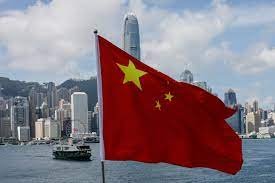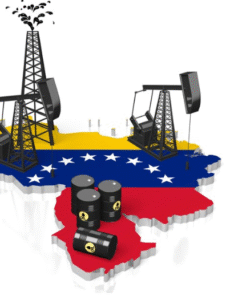$LNG $XOM $BTC
#China #EnergyMarket #USChinaRelations #LNG #GasMarket #OilTrade #Russia #Qatar #EnergySecurity #EconGrowth #TradePolicy #GlobalMarkets
China’s quest for energy security, which includes strategies to diversify its imports of oil, natural gas, and coal, reflects both its domestic needs and larger geopolitical goals. As the world’s second-largest economy, China faces twin challenges of ensuring a stable energy supply while grappling with slowing economic growth. These factors may deter Beijing from aggressively pursuing a comprehensive energy deal with the United States, particularly given current political and economic conditions. Despite former President Donald Trump refraining from imposing fresh tariffs on Chinese exports during his initial return to office, he ordered a reassessment of the Economic and Trade Agreement that was signed in his first term. This review has revived questions about the stability of trade relations between the two countries, especially in key sectors like energy.
Russia and Qatar remain dominant players in China’s energy market, particularly in liquefied natural gas (LNG). While the United States has emerged as a major LNG exporter in recent years, geopolitical tensions and trade uncertainties create obstacles for American suppliers to capture significant market share in China. Russia has the advantage of geographical proximity to China, allowing for reduced transit costs and broader pipeline connectivity. Meanwhile, Qatar is a global LNG powerhouse, boasting the world’s largest reserves and highly developed infrastructure. In contrast, U.S. exporters confront logistical hurdles, higher shipping costs, and regulatory barriers that may disadvantage them in head-to-head competition. However, the potential for LNG remains of interest to market participants, with stocks like $LNG and $XOM poised to benefit if policy changes alter the demand dynamics.
China’s ability to pivot away from U.S. energy imports is also motivated by its desire to insulate itself from political volatility in Washington. The U.S.-China trade war showed Beijing the risks associated with over-reliance on any single nation for critical resources. This diversification effort is evident in recent Chinese investments in Middle Eastern and Russian energy projects. Interestingly, while China’s economic slowdown has depressed demand for some commodities, it also incentivizes long-term energy agreements that lock in lower prices. Current trends suggest Russia and Qatar will continue to command stronger positions in Chinese markets, though any change in U.S. trade policy under Trump could challenge this balance, boosting American LNG exports and, indirectly, benefiting energy-focused stocks.
In the broader markets, investors are closely watching how this competitive dynamic unfolds, as it could ripple through global commodity prices and financial markets. For instance, cryptocurrencies like $BTC have increasingly been discussed as potential hedges against uncertainties in the energy and geopolitical arenas. While not directly correlated, elevated geopolitical risks often coincide with higher volatility in broader asset classes, including digital currencies. Energy sector developments involving China, the U.S., Russia, or Qatar could thus have far-reaching implications, from stock exchanges to futures markets. The outcome of these geopolitical maneuvers will be critical for key players and global investors looking to assess where growth and stability lie in an increasingly multipolar trading environment.











Comments are closed.